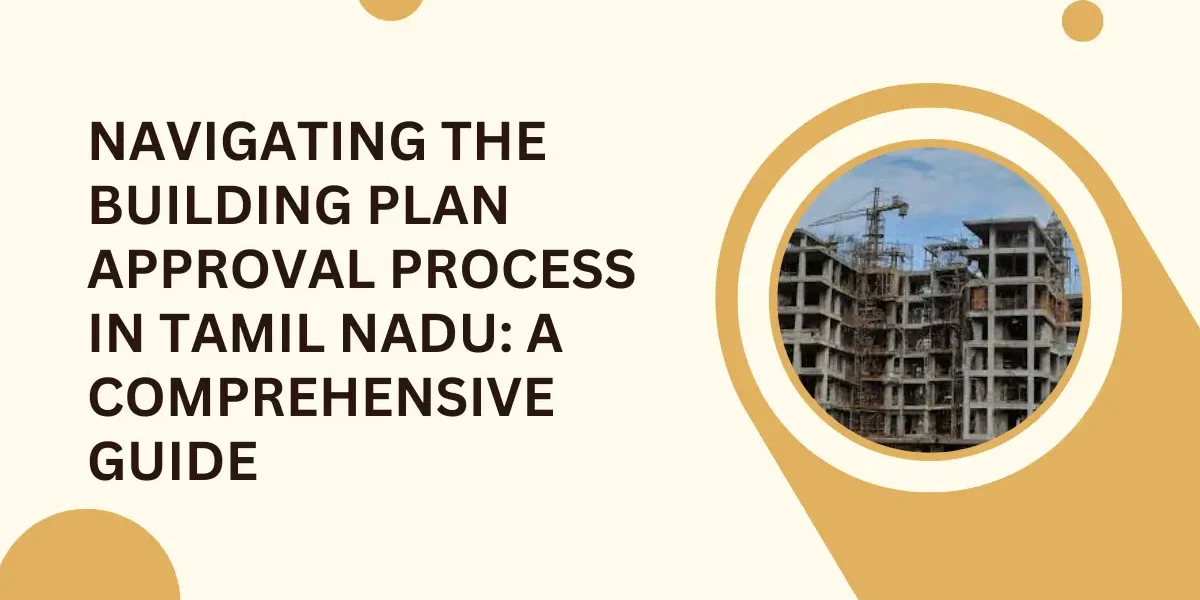Embarking on a construction project in Tamil Nadu is an exciting endeavor, but it comes with its fair share of challenges, especially when it comes to navigating the complex building plan approval process. Understanding the intricacies of this process is crucial for ensuring a smooth and legally compliant construction journey. In this comprehensive guide, we will walk you through the key steps and requirements involved in obtaining building plan approval in Tamil Nadu.
Step 1: Preparing the Building Plan
Before submitting your building plan for approval, it’s essential to ensure that it complies with the relevant regulations and guidelines. The plan should include detailed drawings, specifications, and other necessary documents as per the Tamil Nadu Combined Development and Building Rules (TNCDBR). Engaging a qualified architect or engineer to prepare the plan can significantly simplify this step.
Step 2: Application Submission
Once the building plan is ready, the next step is submitting the application to the local planning authority. The jurisdiction may vary based on the location of your construction project. In urban areas, local municipal corporations or municipalities typically handle the approval process, while in rural areas, panchayats may be responsible.
Ensure that your application includes all required documents, such as the completed application form, site plan, building plan, ownership documents, and any other documents specified by the local authority. The application form is usually available online on the official website of the respective planning authority.
Step 3: Scrutiny and Verification
After submission, the planning authority will scrutinize your application to ensure it complies with the TNCDBR. This process involves checking the technical aspects, zoning regulations, and adherence to safety standards. Any discrepancies or non-compliance issues may lead to a request for modifications or clarifications.
Step 4: Site Inspection
The local authority may conduct a site inspection to verify the accuracy of the submitted documents and to assess the feasibility of the proposed construction. This step is crucial in ensuring that the construction aligns with local regulations and does not pose any safety or environmental hazards.
Step 5: Approval or Rejection
Based on the scrutiny and site inspection, the planning authority will either approve or reject the building plan. If approved, you will receive an approval letter along with any conditions or modifications required for compliance. In case of rejection, the reasons for denial will be communicated, and you may need to revise and resubmit your application.
Step 6: Compliance and Permissions:
Upon receiving approval, it’s important to obtain other necessary clearances and permissions, such as environmental clearances, NOCs (No Objection Certificates), and fire safety approvals, depending on the nature and scale of your construction project.
Conclusion
Navigating the building plan approval process in Tamil Nadu requires a meticulous approach and a clear understanding of the regulatory framework. By following the steps outlined in this comprehensive guide, you can streamline the approval process and ensure a successful and legally compliant construction project. Remember to stay informed about any updates or changes in the regulations to avoid unnecessary delays and complications in your building plan approval journey.For further inquires Contact us.
FAQ
Q1: What documents are required for building plan approval in Tamil Nadu?
A1: Essential documents include a completed application form, site plan, building plan, ownership documents, and any additional documents specified by the local planning authority.
Q2: How long does the building plan approval process typically take in Tamil Nadu?
A2: The timeline can vary, but it usually takes several weeks to a few months, depending on factors such as the complexity of the project and the efficiency of the local planning authority.
Q3: Can I make modifications to my building plan after submission?
A3: Yes, modifications may be allowed during the scrutiny process. However, significant changes may require resubmission of the revised plan.
Q4: What happens if my building plan is rejected?
A4: If rejected, you will receive reasons for denial. You may need to address the issues and resubmit your application after making the necessary revisions.
Q5: Are there additional clearances required after obtaining building plan approval?
A5: Yes, depending on the nature of your construction project, you may need to obtain clearances such as environmental approvals, NOCs, and fire safety clearances after receiving building plan approval.



 WhatsApp us
WhatsApp us